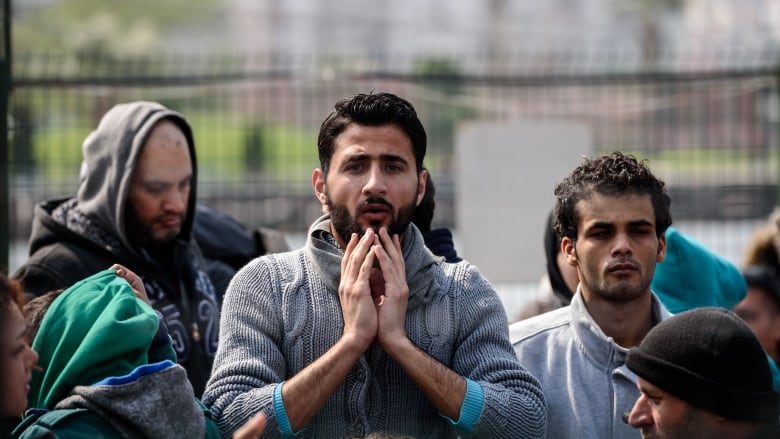EU-Turkey deal to return refugees in effect, but processing stalled
Under pact, Ankara would take back all migrants and refugees who enter Greece illegally

Residents of Bademli village on the Aegean Sea in Turkey say the flow of migrants heading to Europe from the area has almost stopped, following an agreement between Turkey and the European Union.
- Migrants stranded in Greece head for dangerous route north
- Refugees languish in Greece after Macedonia border lockdown
- 5 years into civil war, Syrians dare to hope for rebuilding
Secluded beaches and forests of the village, a hotspot for migrants crossing to Europe, were unusually calm on Sunday, hours after the deal reached last week went into effect.
The accord aims to close the main route by which migrants and refugees pour across the Aegean Sea to Greece before heading north to Germany and Sweden.
According to deal, anyone who crosses to Greek islands from the Turkish coast from Sunday and does not qualify for asylum will be returned to Turkey, with expulsions expected to start from April 4.
Residents of Bademli village, across the Greek Island of Lesbos, said they had noticed a significant reduction in the illegal flow of migrants on Sunday morning.

"There was an intense flow of refugees until two days ago. This flow has reduced as a result of the agreement between the government and the European Union that was sealed two days ago. It has almost stopped. And this village is known for its coves in Dikili. People smuggling is widely done from here," said Suat Yaman, a local resident.
A Turkish news agency reported on Sunday that 320 would-be migrants to Greece had been intercepted in a coastal town. The private Dogan agency said the migrants were caught in the town of Dikili, a main
crossing point to the Greek island of Lesbos.
Implementation of the EU remains uncertain.
Greek authorities say they're not sure any migrants who enter Greece on the weekend will be processed and turned back before Monday.
Greece is expecting 2,300 European experts, including migration officers and translators, to help implement the deal, but none has arrived yet.
Nearly 900 refugees arrive
Instead, 875 new refugees landed on four of Greece's Aegean islands close to the Turkish coast. In one of the boats arriving on the island of Lesbos, two Syrian men were found dead of yet unknown causes.
That is about half the average number of asylum-seekers that have been arriving in Greece each day in recent weeks.
The EU-Turkey plan aims to halt smuggling by sending migrants who come to Greece and do not qualify for asylum back to Turkey in exchange for European nations taking refugees directly from Turkey.
Turkey is also required to step up efforts to crack down on illegal migration. The deal puts Ankara on the fast track to get $6.6 billion US in aid to deal with refugees on its territory, unprecedented visa concessions for Turks to visit Europe and a re-energizing of its EU membership bid.
Turkey, which is already hosting 2.7 million Syrian refugees, has been a primary departure point for Europe, while Greece has borne the brunt of arrivals. More than 1 million migrants arrived in Europe over the past year.
With files from The Associated Press